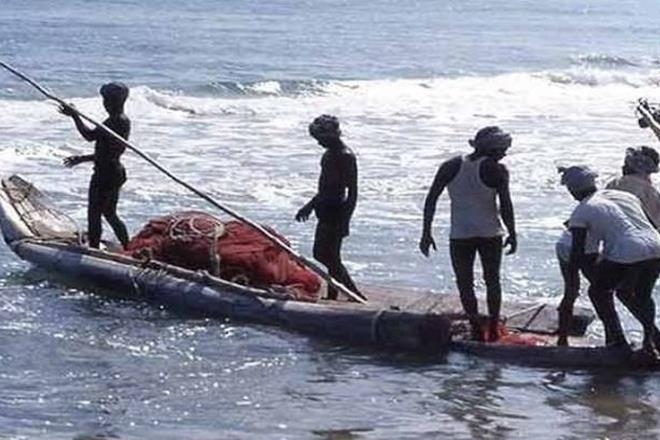
As government readies to pass fishermen bill, disquiet in some quarters
'As the proposed Bill has many disturbing clauses, like criminalisation and imprisonment of fishermen, use of force against fishermen, levy of charges, levy of huge penalties etc., it has resulted in widespread protests and disquiet…'

The Union government is expected to pass the Indian Marine Fishermen Bill, 2021, during the Monsoon Session, despite opposition in some quarters.
Tamil Nadu Chief Minister MK Stalin said on Tuesday that the proposed Bill “has many disturbing clauses”. He urged the Centre not to pass the Bill, and instead put it across for wider debate and discussion.
Many provisions in the proposed Bill go against the interests of the local fishermen communities and certain clauses infringe upon the rights of states under the State List of the 7th Schedule of Constitution of India, Stalin said in a letter to Prime Minister Narendra Modi.
“As the proposed Bill has many disturbing clauses, like criminalisation and imprisonment of fishermen, use of force against fishermen, levy of charges, levy of huge penalties etc., it has resulted in widespread protests and disquiet…”
“I urge you not to move the Bill and also put it across for wider debate and discussions. After obtaining the views of the stakeholders on the Bill in its present form, a decision on moving a fresh Bill that addresses the concerns of the fishermen communities may be taken,” Stalin told Modi.
The CM said that “while we understand and appreciate the need to protect and preserve the marine ecosystem, we also consider it equally important that the livelihood and interests of the traditional fishermen are clearly protected”.
Indian vessels will continue to enjoy fishing rights in India’s economic zone. India’s territorial waters extend up to 12 nautical miles from the coast, and exclusive economic zones extend up to 200 nautical miles.
Only foreign vessels found fishing in the maritime zones of India will be subjected to fine or imprisonment, or both.
Some activists feel that the Bill wrests the power from state governments through some provisions like Section 19 (authorised officers). However, the said Section does allow the state government to have a say. “The central government may, by notification, appoint an officer or a subordinate officer of the Coast Guard constituted under the Coast Guard Act, 1978, or any other officer of the Central Government or officer of the State Government in consultation with that Government, as it may consider necessary, as authorised officers for the purposes of this Act,” it says.
Likewise, Section 9 (monitoring, control and surveillance measures) says: “The central government shall maintain a system of monitoring, control and surveillance to support the development and management of fisheries activities and ensure the safety and security of fishers and fishing vessels, as prescribed.”
It is to be noted that the same kind of suggestion has been recommended by the Sudarshan Committee in 1994. It said that “periodic review of the deep sea fishing operations should be undertaken”, adding, “Vessel tracking systems be installed in all joint venture, leased and 100 per cent EOU [Export Oriented Unit] deep sea fishing vessels”.
Nothing Objectionable in the Bill
Speaking to The Federal, M Ilango, chairperson of the Puducherry-based National Fisherfolk Forum, said that there is nothing objectionable in the proposed Bill.
“Most of the provisions found in the Bill are already in existence. For example, the Bill talks about getting of licences. Licences in truest sense is nothing but registration. The vessels must be registered by providing information such as the length and width of the vessel, colour, etc. In places like Rameswaram, the fishermen are allowed to enter into sea only after getting tokens. When such kind of rules are already implemented, the fear of fishermen is unnecessary,” he said.
“Most of the traditional vessel fishermen don’t go beyond the limit because of the vessel. They will go to maximum 5 nautical miles. In case they go beyond the limit for fishing, they will be fined. According to UNCLOS [United Nations Conventions on the Laws of the Sea], if a vessel has gone beyond the fishing boundary from parent country to another, and if it is found out that the vessel has entered only for fishing and there is no security threat, then the vessel can be pardoned,” added Ilango.


